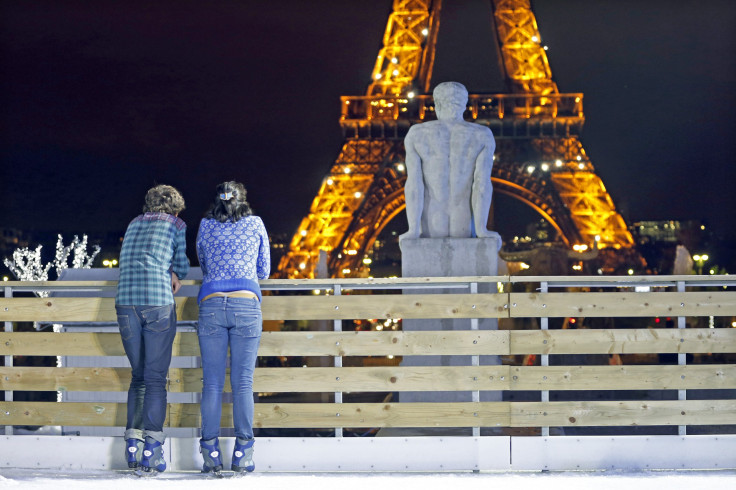Paris Drops Pants Ban For Women Legalizing Trousers After 214 Years

Paris may be one of the most fashion-forward cities on the planet, but its archaic ban on women wearing pants was still in place until just a few days ago.
Since 1799, mademoiselles have technically been required to ask police for special permission to “dress as men” while strolling down Champs-Élysées, visiting the Louvre or enjoying any of the French capital’s other sights -- though the rule was amended two times so that females could wear trouser-like “pantaloons” if they were “holding a bicycle handlebar or the reins of a horse.”
Officials passed the decree during the French Revolution at a time when wearing long trousers (as opposed to knee-length “culottes”) was seen as a symbol of defiance. The ban was meant to prevent women from challenging men’s role in society and to limit access to certain jobs.
Men and women have been equal under the French Constitution since 1946, and the pants ban hasn’t been enforced for decades, but it has long been a thorn in the side for women’s rights activists.
Several officials have attempted to repeal the outdated law in recent years, including a group of Green Party lawmakers who drew up a bill in the National Assembly in 2010. Striking down parts of France’s “judicial archaeology,” however, was seen as a waste of time by the Paris Prefecture (police headquarters).
The issue heated up again this past July when a senator and member of the conservative UMP party directed a public request to Najat Vallaud-Belkacem, France’s minister of women’s rights, arguing that the symbolic importance of the law could “injure our modern sensibilities.”
Vallaud-Belkacem agreed, calling it a “museum piece.” She drafted a statement, released on Jan. 31, calling the ordinance “incompatible with the principles of equality between women and men that are written into the Constitution and in France's European commitments”
“Because of this incompatibility, this by-law is implicitly repealed,” she added. “It has absolutely no legal effect. The document is nothing but a museum piece.”
© Copyright IBTimes 2024. All rights reserved.






















